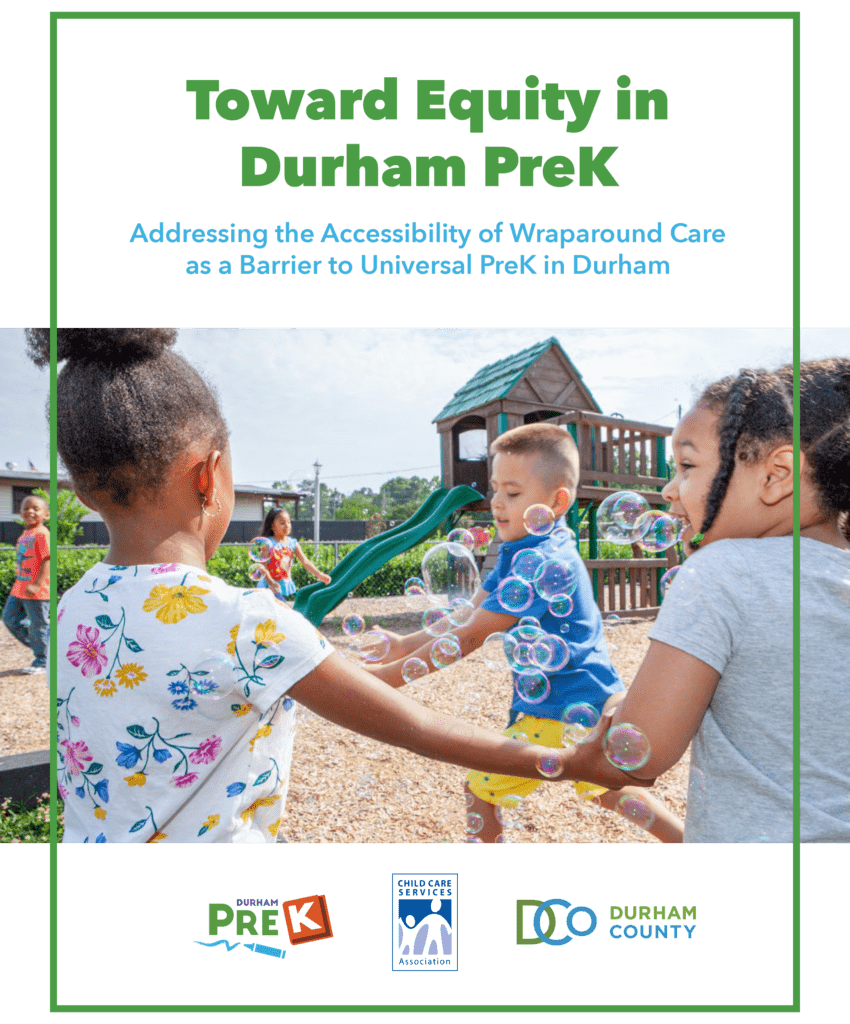At this time of year, pull up to a busy intersection or pass by some popular public gathering place in and around Durham, and there’s a good chance you might find a sign advertising “PreK for All.” January kicks off Durham PreK’s annual recruitment campaign for the approaching school year, and if you have a rising preschooler in your life, you may be wondering what it means to offer pre-k for all.
After a supply and demand study in 2018 revealed that families wanted public pre-k in Durham, the County, along with Child Care Services Association, Durham’s Partnership for Children, Durham Public Schools and Durham Head Start, piloted a universal public pre-k program, which had its first year of full implementation in the 2019-2020 school year. From Durham PreK’s inception, Durham County has centered equity in its planning and development. By intention, classrooms and child care facilities host pre-k seats supported by a mix of early childhood program partners with varying eligibility requirements and aim for racially and socioeconomically diverse classrooms. But as the program grows, Durham PreK’s Governance Committee is keeping a close eye on what’s working and what’s not in its goals to make the program truly universal and open to all families of preschoolers.
The Committee set out in 2021 to identify and study the barriers that prevent some families from applying to or enrolling in its public, universal pre-k program. The first of these barriers to be studied was the availability and accessibility of wrap-around care, or the hours before and after the pre-k day, when many families are working and must rely on some form of child care to keep their jobs or finish degree or training programs. The Committee commissioned a review of the wrap-around care landscape in Durham to find out whether the need for wrap-around care was being met, and if not, how it might be hindering participation in pre-k and what could be done to improve access.
The resulting report, “Toward Equity in Durham PreK: Addressing the Accessibility of Wraparound Care as a Barrier to Universal PreK in Durham,” details the findings, identifies key program participation challenges tied to wraparound care access and availability, and offers conclusions and recommendations for addressing these challenges now and in the future.





